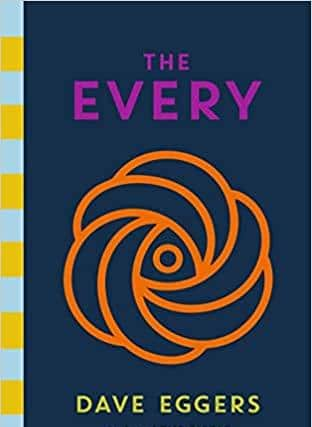Book review: The Every, by Dave Eggers


It is easy to satirise our digital world of funny cat pictures, insistent acronyms and thundering banality. It is also easy to be uncomfortable and even outraged about the erosion of privacy, creeping surveillance and an easily stoked-up blame culture. It is even easy to be circumspect about tech-billionaires who want everyone to see how big or fast their rocket is. But easy is not good; and Dave Eggers manages to walk a tightrope across multiple incomprehensible things. Like Lewis Carroll’s idea of believing as many as six impossible things before breakfast, we are posed questions here. Is Big Tech dangerous, or stupid, or venal? Is it possible that it might be enlightening, caring and informative? Is it the triumph of our species or its virus-like inevitable demise? Novels which do not give answers but frame arguments are rare, and the reader of The Every will be forced to think, at every turn.
The Every is a sequel to Eggers’ 2013 novel, The Circle. In that an ingénue called Mae became part of that company with its relentless slogans such as “secrets are lies”, “sharing is caring” and “privacy is theft”. Mae was part of an experiment of complete transparency. Everything she did, said, watched, commented on, overheard and more was public. We learn in The Every that Circle imploded and was devoured by an even bigger and more insatiable behemoth. They have even consumed a company only ever referred to as “the jungle”. Hint: it was in South America. Our protagonist is Delaney Wells, a former forest ranger, and someone wary of the new technologies, but whose thesis was about how beneficial they might be and the legal status of such monopolies. She has decided to infiltrate Every (where all the employees are Everyone) and seed the system with ideas so lunatic that it will eventually create a tipping point where people say “at this point, no more”. The head of Every is Mae herself. The staff members are mostly lycra-clad, completely fluent in euphemism and self-censoring, perpetually, tooth-gnashingly polite and in a pressure-cooker. They are also immensely self-righteous. Delaney thinks that there is a point where people will say, with Churchill, that the latest roll-out of app or tech is a development “up with which I will not put”.
Advertisement
Hide AdPart of the joy and genius of Eggers’ novel is its hybrid genre nature. At one level it is a thriller, in that Delaney is undercover in a place where there is little capacity for subterfuge. On another, it is a comedy, in a vein almost similar to PG Wodehouse. Delaney is rotated through the different divisions of Every, and each time she attempts to propose something which might provoke a tsunami of “no more”, it catches on like wildfire with both staff and the public. Yet it is a serious book, and one that is perfectly balanced. Take, for example, the idea that we should all have something in our houses that records everything, and an AI algorithm alerts the police if threatening words are said. It is justified in the novel as being no more than a smoke alarm, an argument which is both convincing and specious at the same time. There is a hilarious section where Delaney is despatched to the department where they are attempting to “fix” fiction: “You read a book by Jules Verne these days and he’s going to spend twenty pages describing technology that’s obsolete now. That leads to high quit numbers and a lot of interpaginate skims”. The same chapter has her team leader explaining that “No book should be over 500 pages, and if it is over 500, we found that the absolute limit is 577”. Yes, I checked. The Circle is 577 pages long. More than that, the chapter names are only listed in the preface material rather than above the chapters, alongside timings for how long most people spend on each, and the aggregate approval rating.


Gradually, the purpose of Every becomes more evident and sinister. Choice causes anxiety, so decrease choice. One department states it is “a way to make consumers aware of the advantages of staying within their established preferences”. Another character talks about draining the swamp by having an online forum only for trolls. But Blech is massively popular. “The heaven of the Every could contain hell, too”. In many ways, Eggers’ novel is prophetic. But in many ways it is, to use an old critical theory phrase, an example of the “always already”. You read it and think: yes, this is set in the future but it is actually going on here and now. It is an urgent and necessary book. It’s also fun. You catch more flies with honey than vinegar.
The Every, by Dave Eggers, Hamish Hamilton, £12.99
A message from the Editor
Thank you for reading this article. We're more reliant on your support than ever as the shift in consumer habits brought about by coronavirus impacts our advertisers.
If you haven't already, please consider supporting our trusted, fact-checked journalism by taking out a digital subscription at https://www.scotsman.com/subscriptions